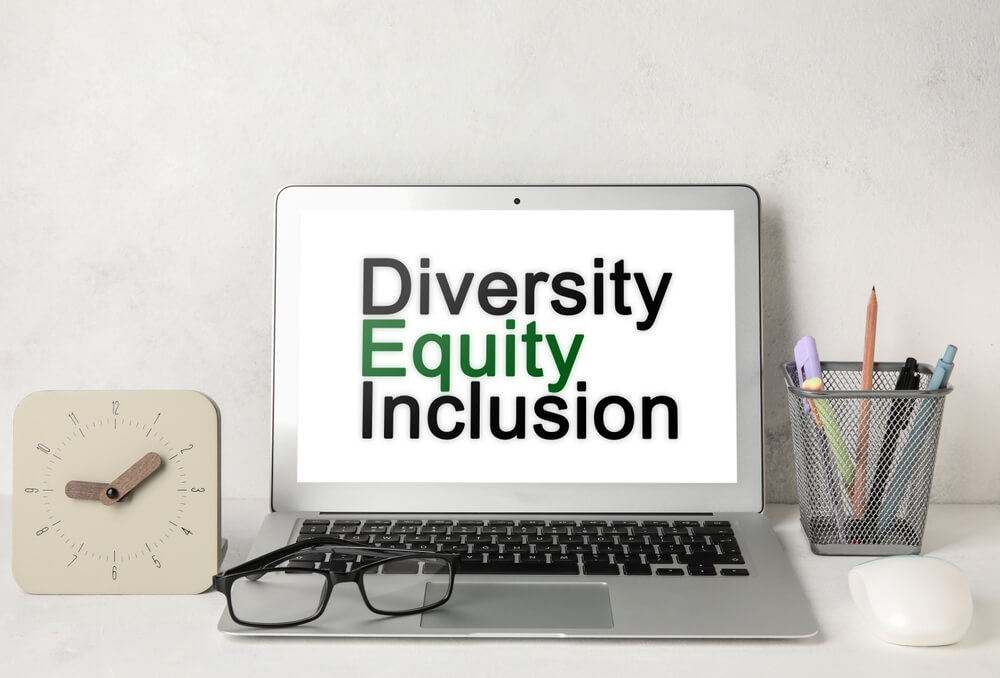Many companies across the country are either withdrawing from or are re-analyzing their Corporate Diversity, Equity, and Inclusion (DEI) initiatives. But DEI initiatives should not be a passing trend—they are essential to creating a thriving, innovative, and sustainable workplace. In today’s increasingly globalized and diverse world, organizations that prioritize DEI foster environments that recruit the best and brightest talent and where all employees feel valued, respected, and empowered to contribute their best work. These initiatives go beyond fulfilling a social responsibility; they drive better business outcomes, enhance employee engagement, and cultivate creativity by embracing a wide range of perspectives. By actively promoting DEI, companies can build stronger teams, improve customer relations, and stay competitive in an ever-evolving market.
Navigating the Complexities of DEI
While corporate DEI initiatives can drive positive change, there is a risk that they may be seen as superficial, performative, or even unlawful if not implemented correctly. Below is a list of key dos and don’ts to help you navigate the complexities of DEI and ensure that your program fosters a truly inclusive and equitable environment. By following these principles, you can build a workplace where all employees feel respected, valued, and empowered to succeed.
1. Do Correctly and Transparently Communicate the Importance of DEI.
Leaders should clearly articulate why DEI matters and how it aligns with the company’s values and long-term success. This means communicating openly about goals, progress, and challenges, so that employees understand both the importance and the commitment behind these efforts. Transparent communication helps to build trust and buy-in from all levels of the organization.
2. Do Survey Employees for Feedback on Diversity and Inclusion.
Regularly surveying employees about their experiences in the workplace is essential for understanding the effectiveness of your initiatives. These surveys provide critical insights into employee sentiment, uncover areas for improvement, and allow employees to voice concerns in a confidential manner. Companies can and should continuously evolve the DEI initiatives by listening to employees and addressing any issues or areas of improvement identified in the survey process.
3. Do Conduct Pay Equity Audits.
Pay equity audits are essential in ensuring that employees are paid fairly for their work, regardless of gender, race, or other factors. Regular audits can help identify and rectify any disparities in compensation, which is crucial for promoting equity in the workplace. By addressing any pay gaps, you demonstrate your commitment to fairness and help to retain top talent across all demographics.
4. Do DEI Training from the Top Down.
DEI training should be implemented at all levels of an organization, with leadership taking the lead. When executives and senior managers model inclusive behaviors, it sets the tone for the rest of the organization. Training should be comprehensive and consistent, addressing topics such as unconscious bias, cultural competency, and inclusive communication. Leadership’s active participation in training demonstrates their commitment to DEI and encourages buy-in from the entire organization.
5. Do Report Discriminatory Conduct or Practices.
Establishing clear channels for reporting discriminatory behavior is crucial in fostering an inclusive environment. Employees should feel safe and supported when they witness or experience discrimination. Leaders should actively encourage reporting and ensure that there is no retaliation for those who come forward. Transparent reporting mechanisms, along with consistent follow-up actions, demonstrate that the organization takes discriminatory conduct seriously and is committed to maintaining a fair and respectful workplace.
6. Don’t Use Hiring Quotas or Metrics to Drive Increased Diversity.
While it’s important to promote diversity in the workplace, relying on hiring quotas or rigid metrics can lead to unlawful discrimination or tokenism (where individuals are hired solely to meet numerical targets rather than being selected for their skills) or even discrimination. Instead, focus on creating an inclusive culture that attracts diverse talent, and ensure that recruitment, hiring processes, and promotional opportunities are fair and equitable. Diversity should be a natural result of a fair and inclusive process, not a quota-driven initiative.
7. Don’t Ask Marginalized People to Shoulder the Responsibility for the DEI Initiatives.
It’s important to recognize that DEI is a collective responsibility, not one that should fall solely on the shoulders of marginalized individuals. Asking underrepresented employees to lead DEI efforts, without proper support, can be burdensome and isolating. Instead, organizations should provide adequate resources, training, and support for all employees to contribute to DEI initiatives and take responsibility for creating an inclusive workplace.
8. Don’t Virtue Signal or Play the Savior.
Virtue signaling refers to actions or statements made to gain social approval without genuinely committing to change. Similarly, “playing the savior” means taking on the role of championing DEI efforts for personal recognition, without truly understanding or addressing any underlying issues. These approaches can come off as insincere and undermine the authenticity of DEI initiatives. Instead, focus on meaningful actions and consistent, long-term efforts.
9. Don’t Ignore the Realities of Unconscious Bias.
Unconscious bias refers to the automatic, unintentional judgments and stereotypes we hold about others based on factors like race, gender, and age. These biases can influence decision-making, from hiring to promotions to firing. Ignoring unconscious bias can perpetuate inequality in the workplace. Organizations should educate employees on the impact of unconscious bias and implement strategies to mitigate it.
Conclusion

These actions, when consistently applied, can help organizations build a more inclusive, equitable, and diverse workplace culture, where all employees can thrive. If you have questions, Contact MSB Employment Justice today to speak with our legal team.




